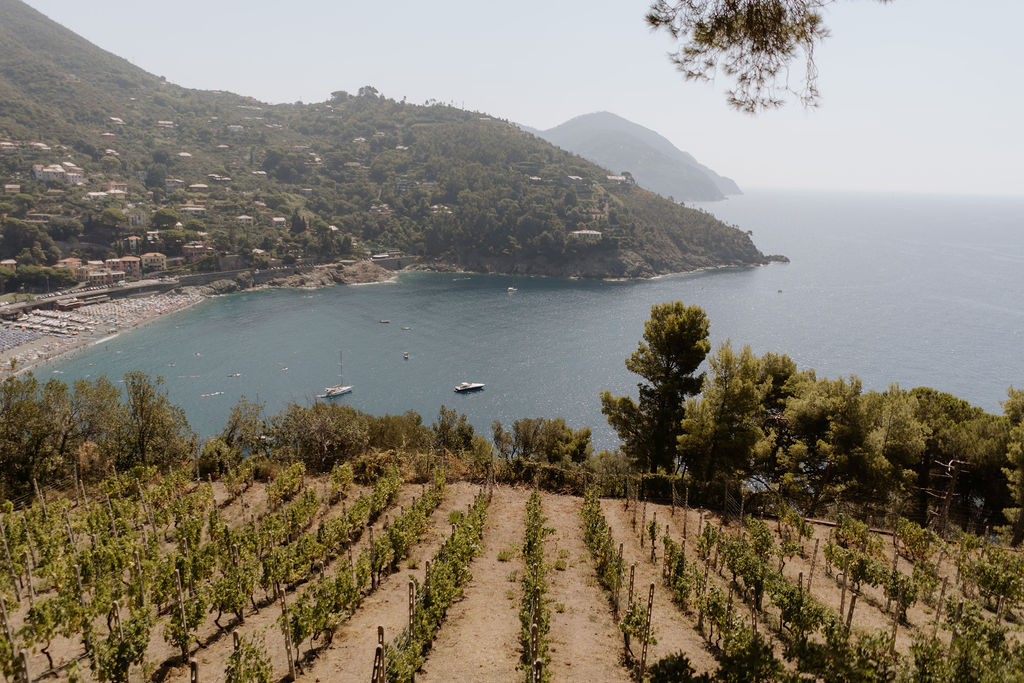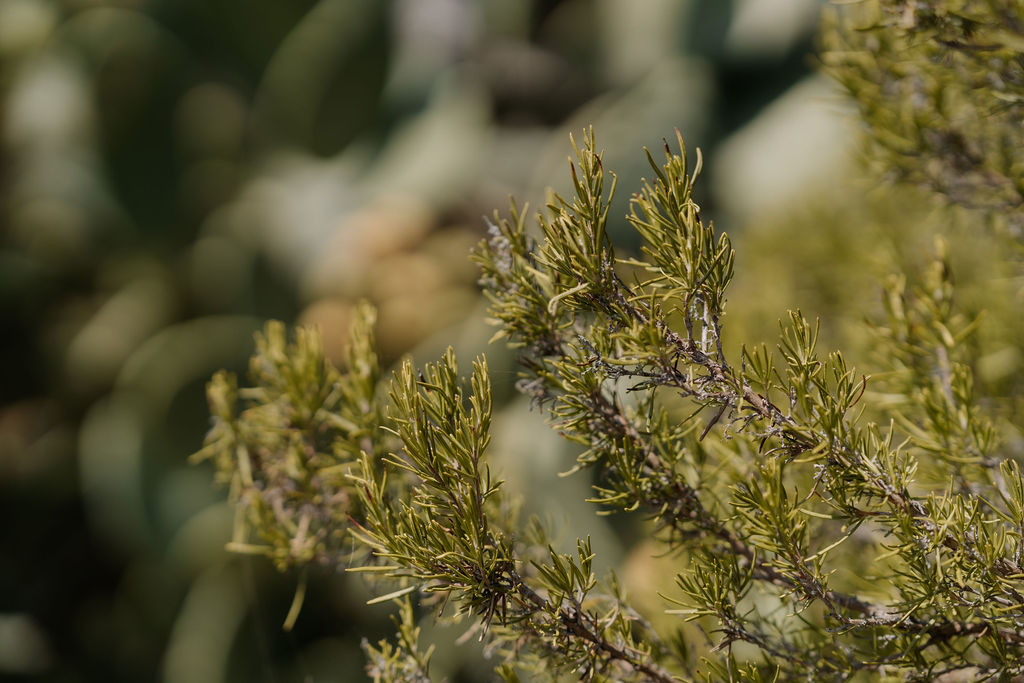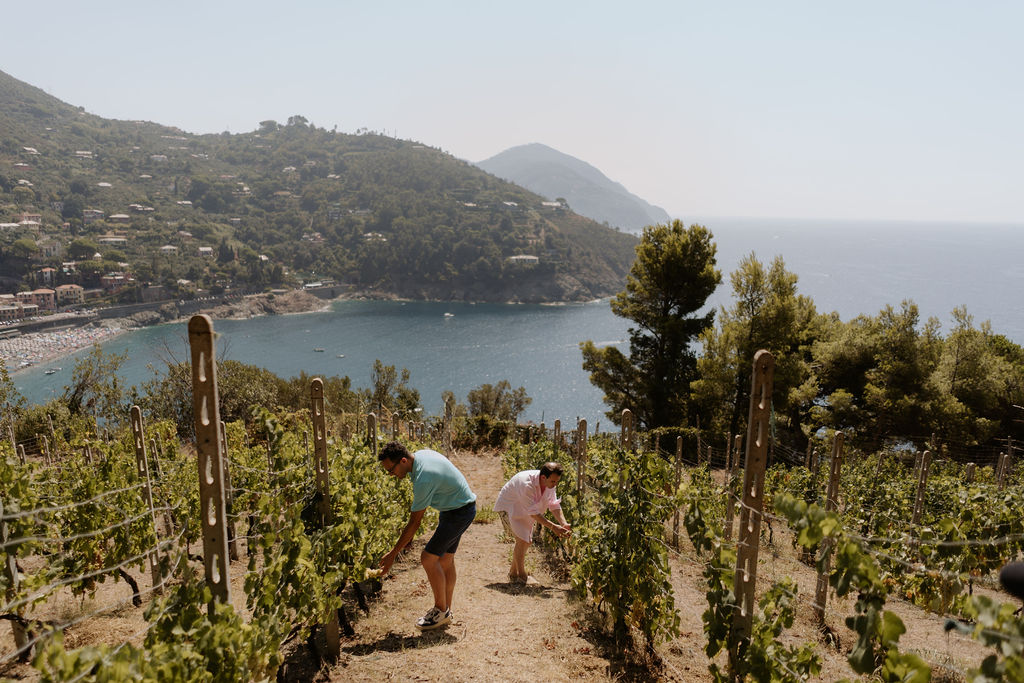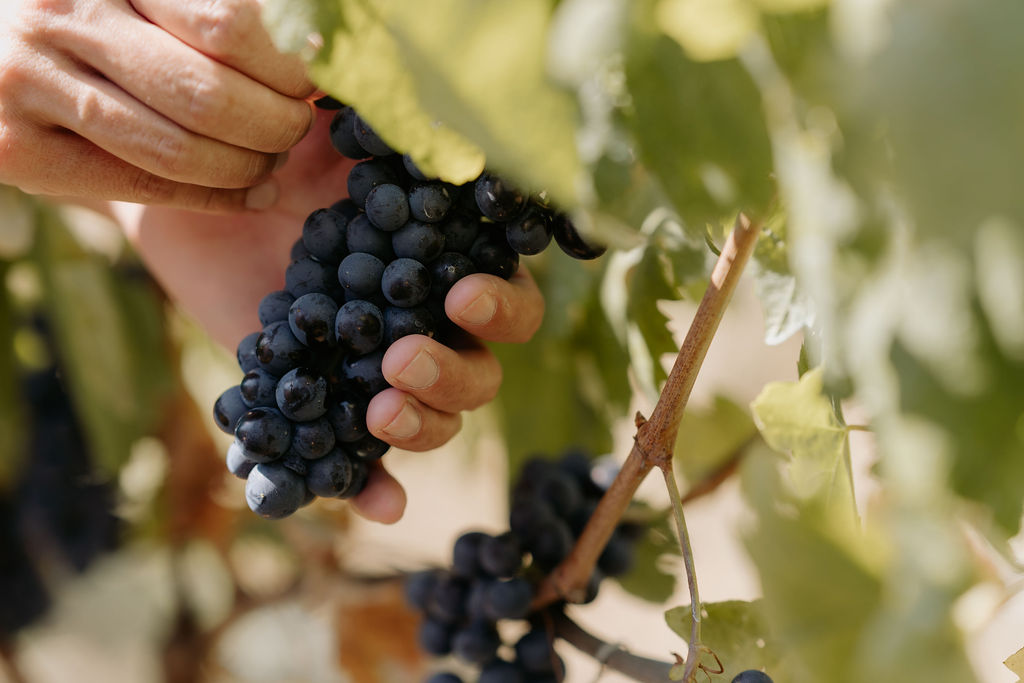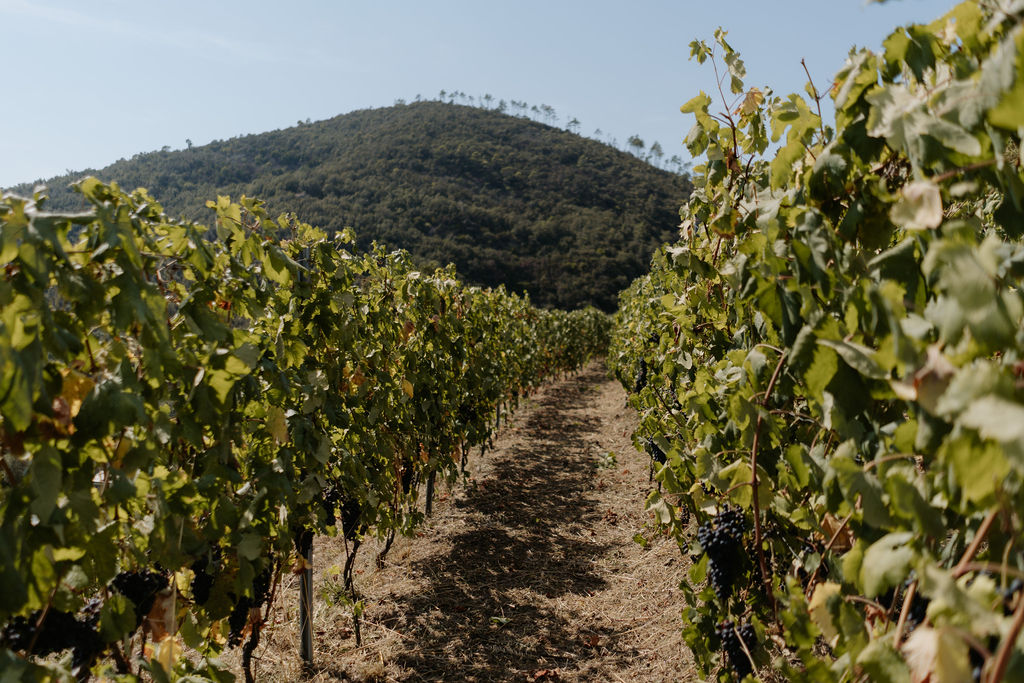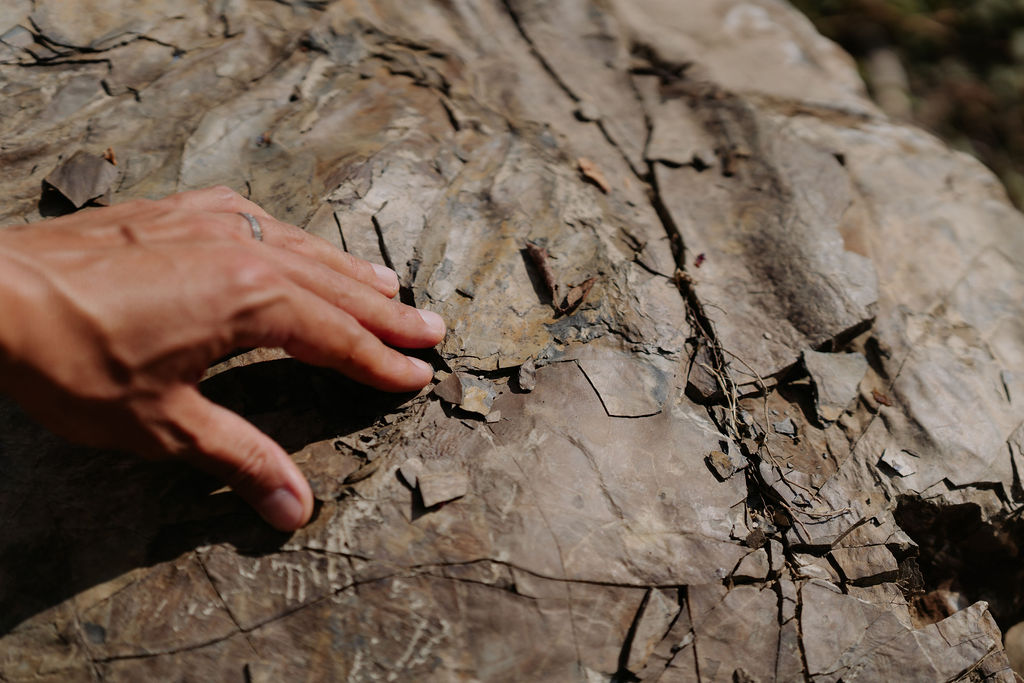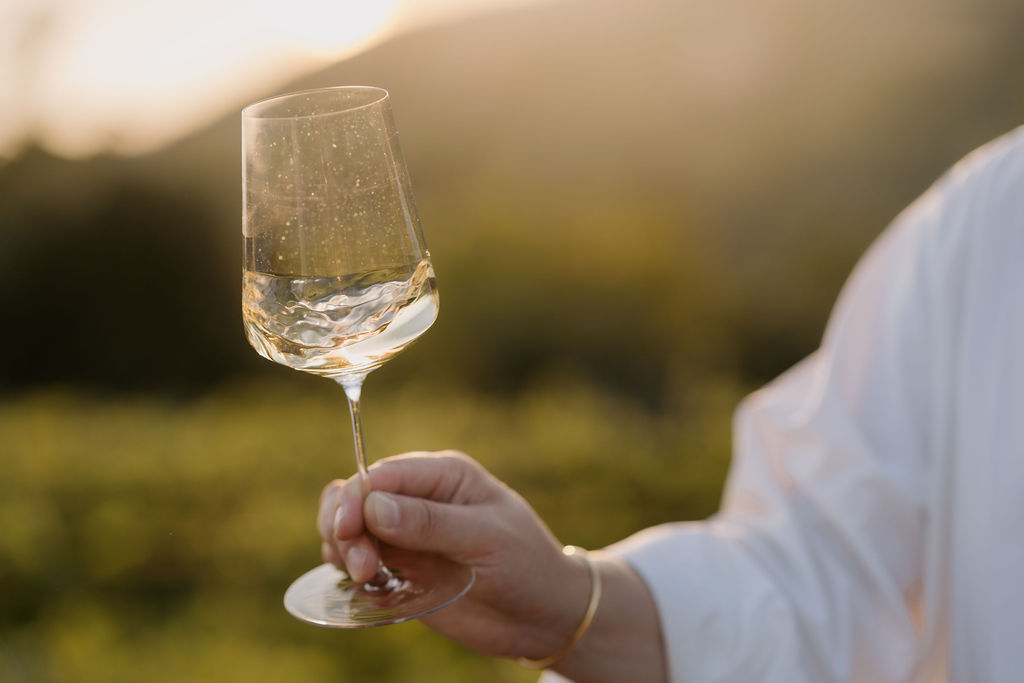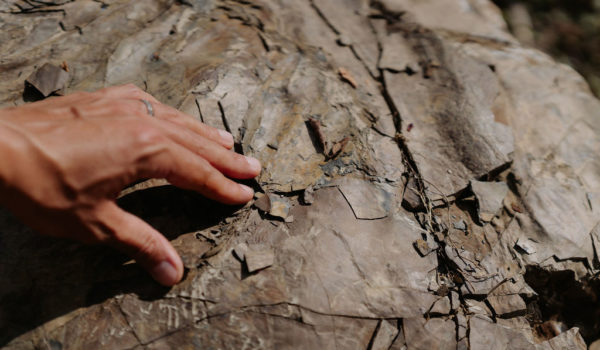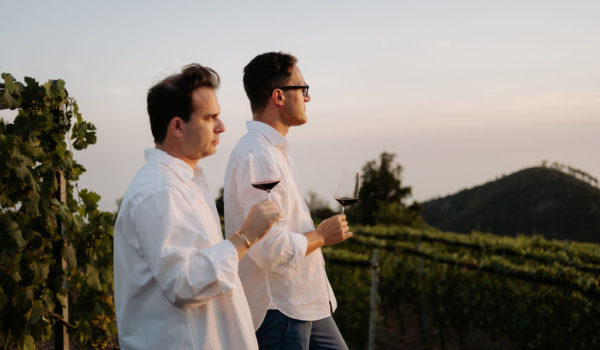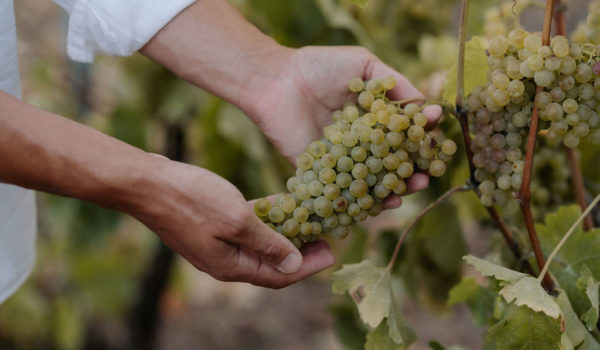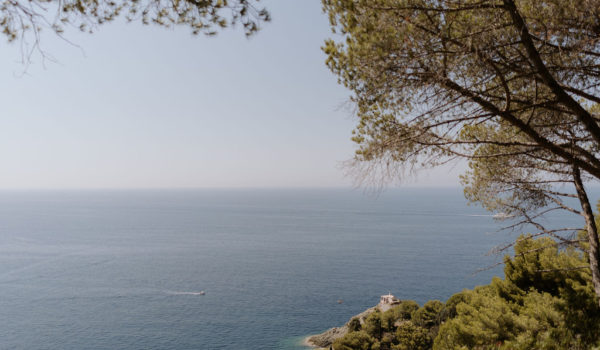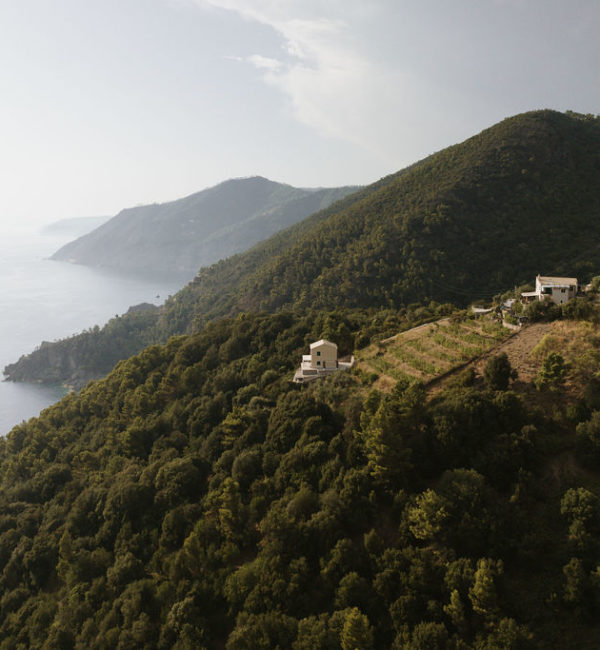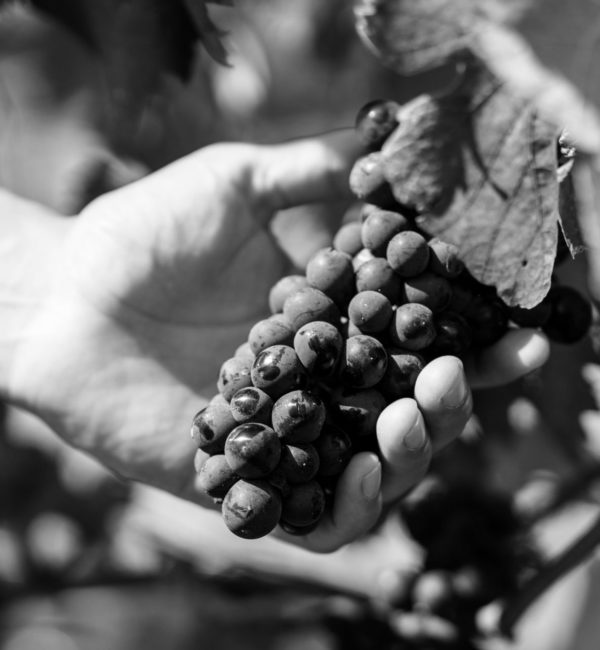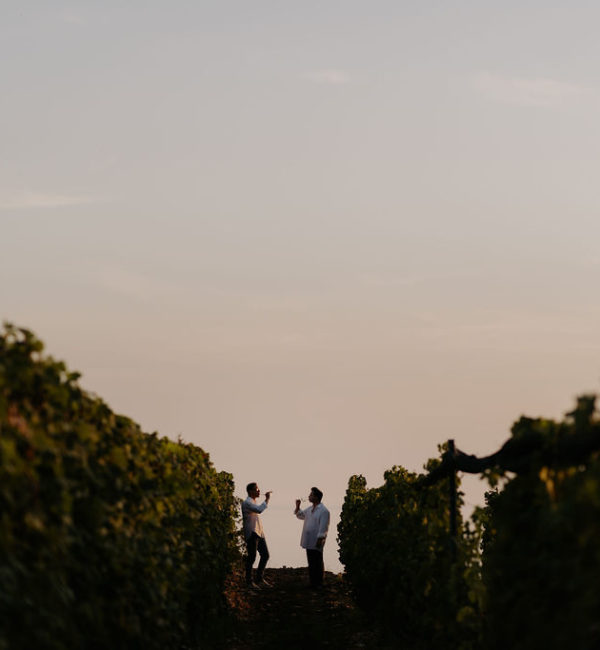The philosophy of Cà du Ferrà is simple: to preserve the memory of the past, respect the land, and honor daily work. Davide and his husband Giuseppe are the voice of this place: they transform agricultural gestures into stories, waiting into maturity, and passion into wine.
Our approach to sustainability
Sustainability is an art – an intricate weaving of care, innovation, and respect for the world around us. It is a conscious approach that recognises the importance of preserving the environment, enriching society, and cherishing resources, both natural and human. It is not merely a responsible choice, but a promise for the future: a commitment to a world that can thrive in harmony, where every action and thought contributes to lasting balance.
Hail nets, although made of non-degradable and potentially polluting material, prove to be an extraordinary tool. By shading plants, they reduce photosynthesis and, consequently, the emission of carbon dioxide. This shading effect leads to water savings, as plants under the nets transpire more slowly, requiring less moisture.
Indigenous varieties stand at the forefront of authentic sustainability. Adapted to the unique microclimates of their native land, these plants carry a legacy of resilience and efficiency, turning every drop of effort into productivity.
Green manures dance across the soil as guardians of nature – forsaking chemicals and embracing purity. They nourish the earth, preserve its water reserves, and build a bridge between ancient wisdom and future innovation.
Walking, instead of using farm machinery, becomes a gentle gesture toward the planet. Every step is a sign of respect – an embrace of the land, free from noise and emissions.
Artificial intelligence becomes an ally of nature, observing the sky and interpreting its signals. Timely and precise, it guides attentive hands in treatments and irrigation, harmonising technology with agriculture.
Being organic is a song of purity. Avoiding pesticide pollution in our waters is a gift to all living things – a commitment rooted in love for the earth and its future.
Antagonistic insects act as silent warriors – small heroes that defend natural balance. Their presence reduces the need for bio-insecticides, relying instead on nature’s own power.
Alongside them, bees – tireless architects of life – fly from flower to flower, weaving invisible threads between species. Pollination is an act of love that ensures biodiversity, harmony, and abundance. Without them, the future would lose colour, variety, and breath. To protect them is to protect life itself.
And at the heart of it all, our people. Physical and mental well-being, ongoing training, equal opportunities, and a balanced work-life rhythm form a melody that values each individual. Our corporate culture is ethical, respectful, and inclusive – fostering a deep bond between people and the place they work.
It is a celebration that unites every element into a sustainable symphony – where each note contributes to the well-being of the planet and its people.
The recovery of ancient grape varieties
The pride of Cà du Ferrà is the recovery of rare and ancient vines, which is in the vein of returning to the past and respecting a place as it originally was.
To rediscover the original viticultural crops, the winery – in its Bonassola soils – aims to bring back varieties such as Ruzzese, Rossese Bianco, Picabon and Albarola Kihlgren, which have been present in the Cinque Terre and the Eastern coast of Liguria since ancient times, but have partly been forgotten throughout recent history.
The Cà du Ferrà’s work of replanting began with Ruzzese, as part of the demonstration project entitled “The recovery of biodiversity through the replanting of the Ruzzese vine” supported by Coldiretti La Spezia, the Liguria Region, CNR of Turin and Slow Food. What is coming back to life is not only a forgotten vine, replanted in Bonassola in the San Giorgio area and bearing fruit again, but also centuries-old traditions and stories.
Not everyone knows that Ruzzese is the forerunner of Sciacchetrà, the passito wine identifying the Cinque Terre, which today is generally made from Bosco, Albarola and Vermentino grapes, and which Cà du Ferrà rather produces from the white Ruzzese grape according to ancient tradition.
Finally, an anecdote that links this ancient vine to Pope Paul III Farnese who, in the second half of the 16th century, “Used to dip his hulled and sugared figs in the sweet Ruzzese,” as narrated by his bottle-keeper Sante Lancerio, a tireless seeker of exceptional wines to offer at the Pope’s banquet.
